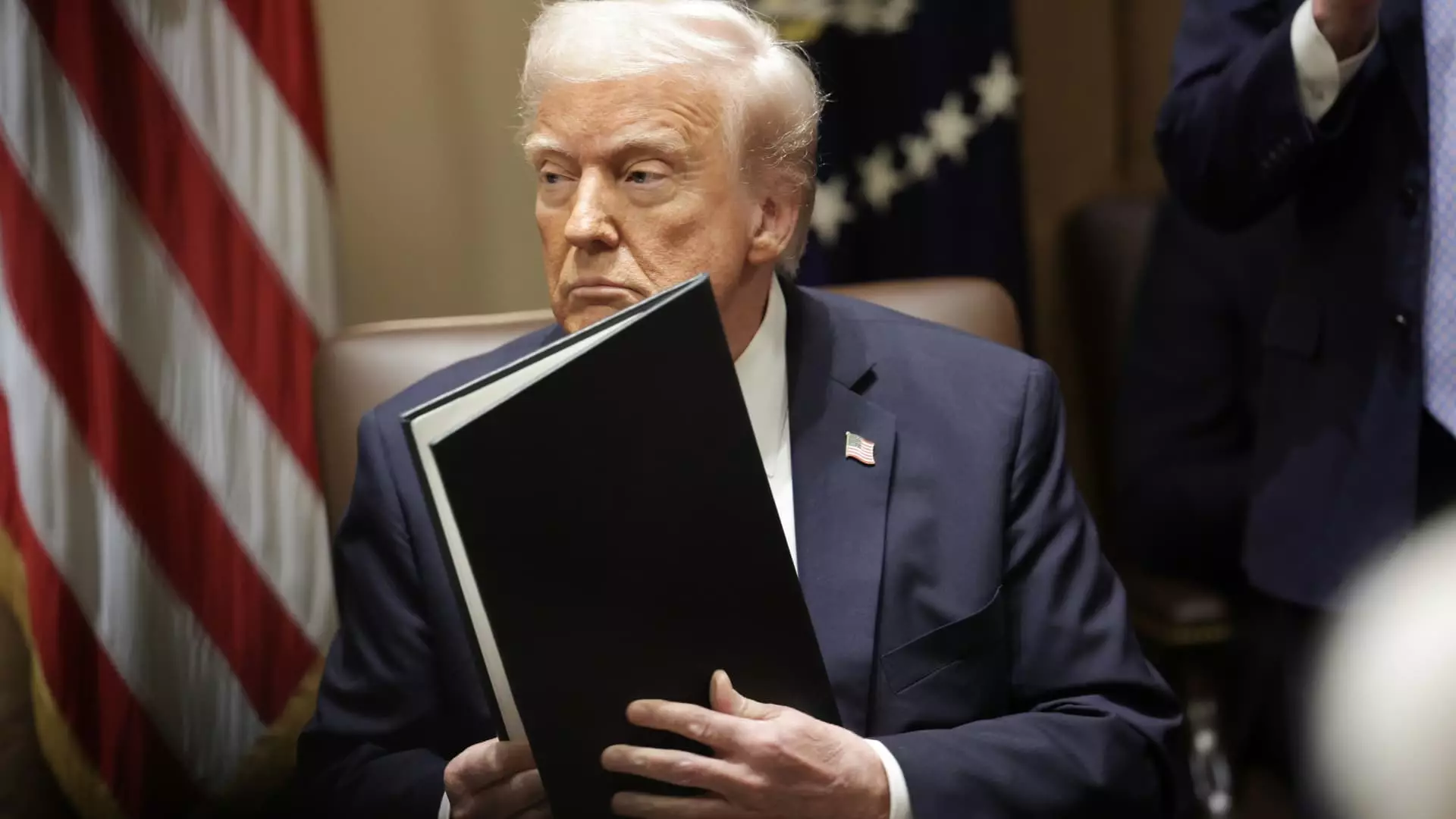The impending announcement of new tariffs on auto imports by President Trump has ignited a wave of anxiety across financial markets. As the White House prepares to unveil these tariffs, we can anticipate yet another turbulent chapter in Donald Trump’s unpredictable approach to trade policy. The announcement will undoubtedly cause further stock market volatility. Markets hate uncertainty, and little creates more of it than Trump’s often erratic decisions. Investors are understandably skittish; the news of looming tariffs has already sent stocks plunging to their session lows, reflecting deep-rooted fears amongst business leaders about the future economic landscape.
The Myths of “Reciprocal Tariffs”
Trump has long touted the idea of “reciprocal tariffs” as a solution to perceived trade imbalances. But what exactly does this mean? While on the surface it sounds commendable—a fair trade policy for all—in practice, it is nothing short of a ruse. The notion that imposing tariffs on countries with their own import duties can restore fairness is fundamentally flawed. Countries do not operate in vacuum-like markets, and the repercussions of such a blunt approach create ripple effects that could spiral out of control. Trump’s comments about a “liberation day” on April 2 seem more like a rallying cry for his base rather than an intelligent economic strategy.
Flexibility or Confusion? A Test of Diplomacy
In the last few days, Trump’s rhetoric has shifted toward suggesting that these tariffs could be more lenient than initially planned. What does this flexibility indicate? Is it a last-minute attempt to thwart backlash, or perhaps an acknowledgment of the chaotic consequences of previous policies? Treasury Secretary Scott Bessent’s assertion that countries can negotiate pre-emptively with the U.S. to avert tariffs sends a mixed message. On one hand, it reflects an openness to dialogue, but on the other, it underscores the uncertainty businesses face when navigating these unpredictable waters. Whom can they trust? Trump’s statements often seem driven by impulse rather than a coherent policy vision, leaving international partners scrambling for clarity.
Broken Relationships and Emerging Global Tensions
The long-term impact of these tariffs will likely extend beyond domestic markets. History repeatedly shows that aggressive tariff policies can result in tit-for-tat responses from affected nations, creating a trade war that can shatter relationships built over decades. Nations are interconnected like a well-woven tapestry, and when one thread is pulled aggressively, the whole system risks unraveling. Diplomacy may suffer greatly, as international counterparts view the U.S. as a capricious partner driven by short-term self-interest.
A Dangerous Precedent for Future Generations
The long-term implications of Trump’s tariff strategy present a gravitational pull toward a protectionist economic environment rooted in isolationism. It raises the stakes not just for present economic conditions but for the trajectory of U.S. trade relationships moving forward. The dangerous precedent being set could pave the way for future leaders to adopt similar combative approaches, frustrating collaborative international efforts. With economic decisions having lasting societal consequences, this retreat from cooperation will reverberate through generations yet to come.

